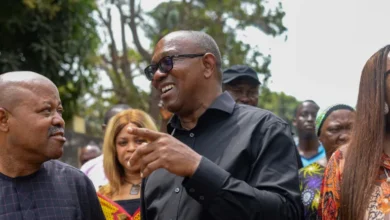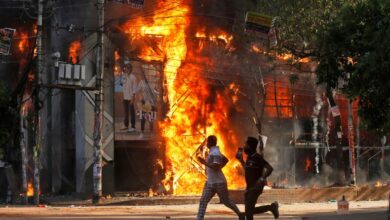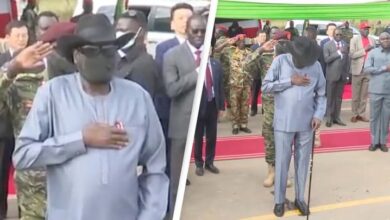Nigeria election tribunal upholds President Bola Tinubu’s victory

Nigeria’s presidential election tribunal ruled on Wednesday that Nigeria’s main opposition parties failed to prove claims of electoral malpractice against the governing All Progressives Congress (APC) in February’s disputed elections.
“This petition is hereby declared unmeritorious,” one of the judges said, as the tribunal rejected the opposition challenge to Bola Ahmed Tinubu’s win in the presidential election.The challenges came after one of the country’s most tightly fought elections, in which former Lagos governor Tinubu won 37 percent of the vote, beating Atiku Abubakar of the People’s Democratic Party (PDP) and Peter Obi of the Labour Party to secure the presidency of Africa’s most populous nation.
Abubakar and Obi had asked the court to invalidate the election, alleging irregularities.
Judges rejected all claims made by Labour Party candidate Obi, including fraud, charges electoral authorities broke the law and allegations Tinubu was ineligible to run.The court was also reading its judgement on a second opposition party petition, which is also expected to be dismissed. Filed by PDP candidate Abubakar, it lays out similar complaints against the February 25 election results.
No legal challenge to the outcome of a presidential election has succeeded in Nigeria, which returned to democracy in 1999 after three decades of almost uninterrupted military rule and has a history of electoral fraud.
Record-low turnout
Atiku and Obi can appeal to the country’s Supreme Court to strike down the tribunal’s ruling. Any appeal must be concluded within 60 days of the date of the tribunal judgement.
Tinubu’s government had dismissed all claims of wrongdoing and appeared confident before Wednesday’s decision. Currently, he is in India for the G20 summit, where he hopes to drum up foreign investment.
While favourable to Tinubu, the tribunal’s ruling was unlikely to generate any particular euphoria or momentum for the president after an election marked by a record-low turnout of 29 percent.
In a nation of more than 200 million people, of whom 87 million were registered to vote, Tinubu garnered just 8.79 million votes, the fewest of any president since the return to democracy.‘Vote was free and fair’
The Independent National Electoral Commission (INEC) introduced biometric technology and IReV, a central database for uploading results in real-time to ensure transparency.
INEC acknowledged “glitches” but dismissed claims the vote was not free and fair. But critics said the technical problems and delays had allowed opportunities for vote manipulation.
The court ruling comes as Nigerians struggle with a rising cost of living after the government ended a fuel subsidy programme that kept petrol prices low and also freed up the naira currency.
Government officials say the policies are needed to revive the economy, calling for patience and supplying state governments with funds to help offset the impact.
Tinubu inherited anaemic economic growth, high unemployment, the highest inflation rate in two decades, record debt, massive oil theft that has hit government revenue and widespread insecurity from predecessor Muhammadu Buhari.










